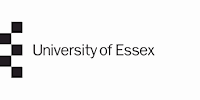MSc Digital Education
University of Essex Online
Summary
- 5% discount if full tuition fee paid up-front.
- UK and EU nationals living in England may be eligible ...
- Tutor is available to students
Add to basket or enquire
Overview
Don't miss out on our special anniversary scholarship for July!
2024 marks 60 years of the University of Essex – and to celebrate this milestone, we’re offering a 10% scholarship on all our Masters programmes and online professional courses. Please note, the deadline for this scholarship is 31 July. To find out more or to be considered for a scholarship, please contact our Admissions team.
Digital technology is important at all levels of education, from primary, secondary and higher education. The MSc Digital Education teaches you how to integrate technologies into an educational setting – ensuring you enhance your work-based practice and skills.
Qualification
Course media
Description
Throughout this course, you’ll explore exciting topics that give you a solid understanding of modern technology within teaching and learning. The course explains and shows how various AI technologies can be used in education, helping you stay a step ahead.
The MSc Digital Education is made up of the following modules and, upon completion, is equal to a total of 180 credits.
- Philosophy of education and theories of teaching and learning (20 credits)
- Delivering effective teaching and learning (20 credits)
- Digital learning and inclusion (20 credits)
- The role of research and academic literature in developing practice (20 credits)
- Digital production methods in teaching (20 credits)
- Digital futures: artificial intelligence and education (20 credits)
- Research methods in teaching and learning (20 credits)
- Dissertation (40 credits)
Shorter awards are available for this course; the 16-month postgraduate diploma (PG Dip) at 120 credits and the 8-month postgraduate certificate (PG Cert) at 60 credits.
Requirements
Academic entry route - an undergraduate degree from an approved institution, equivalent to a UK Honours degree; or a relevant professional qualification.
Work experience entry route - at least two years of education work experience.
English language requirements
As our courses are delivered in English, a high proficiency is required in this language. If English isn’t your first language, your English ability should be equivalent to an IELTS (Academic) score of 6.5. Don’t worry if you don’t hold an IELTS or equivalent qualification – we offer a free online English test to assess your proficiency.
Career path
On completion of this course, you’ll have gained the knowledge and practical skills needed to secure a successful, digitally centred role within education. This could be in management, research, the implementation of new technologies within education, or even as an education adviser. Alternatively, you may continue in your current role with greater insight into digital education.
Questions and answers
Reviews
Currently there are no reviews for this course. Be the first to leave a review.
Legal information
This course is advertised on reed.co.uk by the Course Provider, whose terms and conditions apply. Purchases are made directly from the Course Provider, and as such, content and materials are supplied by the Course Provider directly. Reed is acting as agent and not reseller in relation to this course. Reed's only responsibility is to facilitate your payment for the course. It is your responsibility to review and agree to the Course Provider's terms and conditions and satisfy yourself as to the suitability of the course you intend to purchase. Reed will not have any responsibility for the content of the course and/or associated materials.


